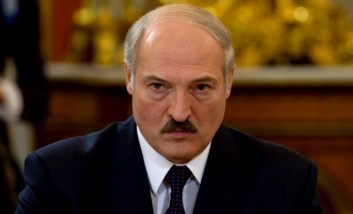Tighter public policy – reaction to lack of resources
 The situation has not changed
The situation has not changed

On February 26th, at the Council for Business Development meeting President Lukashenko said that he would persecute any attempts by businesses to participate in politics.
Lack of human and financial resources forces President Lukashenko to tighten his policy towards business and government as well as the internal governmental policies. However, neither nomenclature, nor business yet show any signs of opposition to the ruling group.
Lukashenka’s harsh statements are a forced reaction to the lack of resources in the Belarusian economy. He send a warning not only to businesses, but to the government too: on March 1st he threatened to sack all those who failed to fulfill the ambitious plan for economic growth in 2013. In particular, the President pointed that the government’s assessment of investments in the economic modernization were overestimated by 25% and demanded spending cuts.
This behavior is typical of Alexander Lukashenko as he is definitely preparing for the next presidential election in 2015, therefore he tightens both, the internal discipline in the nomenclature and business elites (threating of reprisals), and the voters’ trust (by usual populist and indicative devastating critique of bureaucracy).
However, it should be noted that the President is not only limited in financial resources, but also lack trust to his assistants who are responsible for monitoring compliance with his orders. The most striking example is the case of the former head of the National Bank, 72-year old Peter Prokopovich, who in the last few months was empowered as Deputy Prime Minister, appointed responsible for the implementation of the industrial modernization programme, as well as the Representative of Belarus to the Eurasian Economic Commission, and, finally, as Chairman of the Board in the Business Development Council.
Thus, President Lukashenko’s harsh statements should be regarded as a demonstration of power, and as an attempt to compensate for an acute shortage of financial and human resources in the government. At the same time, neither the President’s environment, nor the Belarusian business show interest in exploiting the government’s weaknesses. Law enforcement agencies remain under the President’s control and yet effectively neutralize all the disloyalty manifestations.
Subscribe to our newsletter




Situation in Belarus
Constitutional referendum: main consequences


 Video
Video
How to count the political prisoners: are the new criteria needed?


 Video
Video
Paternalism In Decline, Belarusian Euroscepticism, And The Influence Of Russia


 Video
Video












